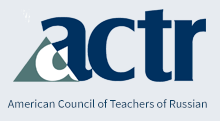Russian Language Journal
Keywords
Media literacy, Russian language, Russian language pedagogy
Abstract
Given weaponized disinformation about recent US elections and the ongoing Russian invasion of Ukraine, media literacy has become an essential part of a 21st-century liberal arts education, in line with the AAC&U’s Essential Learning Outcomes. By including news media in the language classroom, instructors can introduce students to the products and practices of the target culture and enhance their comprehension of Russian-language texts. We describe a current events blog project, appropriate at any level of instruction, with specific examples from second- and sixth-semester university-level Russian-language courses. Students follow current events in the Russian-speaking world on a topic of their choosing, using sources from Russian-speaking countries as well as other countries. They summarize what they have learned in weekly blog posts on the class’s LMS, and comment on the posts of their classmates. At the second-semester level, students read and write primarily in English, using sources that originate in the Russian-speaking world, such as Meduza, The Astana Times, or the English-language page for the Russian news agency TASS. Each post must include ten Russian words or phrases. At the sixth-semester level, students write in Russian and compare Russian- and English-language media. As a reading aid and meta-linguistic practice, students use Google Chrome’s auto-translate function to navigate these articles and assess the tool’s outputs for accuracy, noting phenomena (idioms, word order, etc.) that cause them to fall short. Students are further tasked with predicting the likely appearance of familiar keywords in Russian-language articles. This task draws their attention to word formation and parts of speech, enriches their vocabulary, and helps them better understand grammatical-stylistic conventions in English and Russian alike. Finally, the project incorporates all five elements of World-Readiness Standards for Learning Languages: communication, culture, comparisons, connections and community (2015). At the end of both projects, students reflect on the experience of reading news from different sources, and how their sources vary from one another. Students have expressed an appreciation for the diverse perspectives they encounter while reading news from outside their country, and highlighted the limited news coverage of the Russian-speaking world in the media they generally consume.
Recommended Citation
Anderson, C., & Brooks, D. (2023). Tracking Current Events in the Russian-Language Classroom. Russian Language Journal, 73(2). https://doi.org/10.70163/0036-0252.1349


